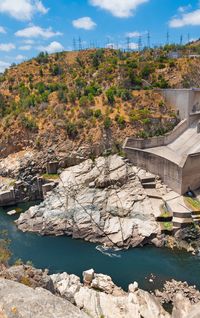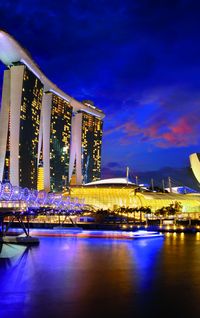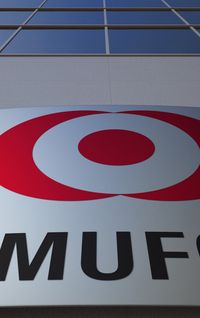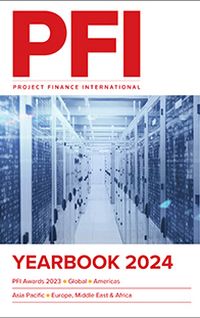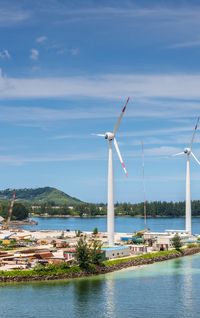The RDMP Balikpapan Refinery in Indonesia successfully achieved financial close in August 2023, making it one of the biggest project financings in Indonesia. The funds will be used to expand the refinery and its operational capacity. It is expected that Pertamina will continue on this trajectory to upgrade more of its refineries to improve efficiency and reduce emissions – undoubtedly a positive step in furtherance of the government’s net-zero emission programme. By Tim Fourteau, partner, White & Case, Gabby Wong, associate, White & Case, Fransetya Hasudungan Hutabarat, director of Finance, PT Kilang Pertamina Internasional, and Ronald Teckwani, head, natural resources, project finance team, Mizuho Bank.
Indonesia, the largest economy in South-East Asia, has a significant dependence on oil and gas to fuel its growth. This reliance is twofold: the country depends on these resources for domestic energy consumption and also derives significant revenues from the oil and gas sector, which is a substantial part of its export economy. In terms of energy consumption, Indonesia has a growing appetite for oil to fuel its transportation sector, and for gas for electricity generation and industrial use.
However, Indonesia’s own oil production has been declining over the years and, despite being a notable gas exporter, the country has faced challenges in managing its resource wealth for domestic use. This decline has led to increased oil imports, impacting Indonesia’s trade balance. It has therefore devised several strategies to resolve this problem.
One such strategy is the Refinery Development Master Plan (RDMP) outlined in 2015. As of November 2023, state-owned oil and gas corporation Pertamina operates six domestic refineries throughout Indonesia. As part of the RDMP, Pertamina intends to modernise four of its refineries and construct three additional ones, with the goal of improving the efficiency and greatly increasing its refining capacity to exceed 1.5m barrels per day. Another critical component of the RDMP is integrating petrochemical production into the refinery process. This integration is expected to add value and diversify the output of the refineries, potentially opening new revenue streams and reducing its reliance on petrochemical imports.
The refineries earmarked for these upgrades include:
* Balikpapan refinery – One of the major projects under RDMP that aims to boost its capacity and processing capabilities;
* Cilacap refinery – Located in Central Java, this refinery is also slated for significant upgrades;
* Dumai refinery – Situated in Riau, plans for this refinery include improving its processing capabilities and efficiency; and
* Balongan refinery – Located in Indramayu, West Java, this refinery is expected to see an expansion in its production capacity and an upgrade to its facilities.
In advancement of this, Pertamina has been pursuing partnerships with foreign investors to help finance these projects, and has accessed various funding sources, including loans from international banks, bonds, and other financing instruments.
The RDMP Balikpapan refinery has also been designated as one of Indonesia’s National Strategic Projects (Proyek Strategis Nasional), a series of ambitious infrastructure and development projects identified by the Indonesian government as being crucial to the country’s economic and social development.
Launched under various presidential regulations, these projects span multiple sectors, including transportation (roads, bridges, airports), energy, information and communications technology, and irrigation, among others. As of April 2023, a total of 156 National Strategic Projects have been completed with an investment value of Rp1,080.2trn. There remain 37 projects and nine programmes that are functioning to some extent, while 79 projects are undergoing construction.
The inclusion of the RDMP Balikpapan refinery upgrade as a National Strategic Project reflects the government’s recognition of the energy sector’s importance to the country’s overall strategic development goals. In doing so, the government aims to fast-track development, streamline project approval processes, and offer various supports, such as regulatory facilitation and fiscal incentives, to ensure the successful completion of these projects.
RDMP Balikpapan refinery
The Balikpapan refinery has a rich history that dates back to the early 20th century. It is located in East Kalimantan, Indonesia, and stands as one of the oldest refineries in the region. The refinery’s history began when oil was first discovered in the Balikpapan area in the late 19th century. Commercial production started in the early 20th century, with Dutch oil company Bataafsche Petroleum Maatschappij (BPM), a predecessor of Royal Dutch Shell, playing a key role in the development of oil extraction and processing facilities in the region.
During World War II, Balikpapan was occupied by the Japanese forces due to its strategic importance as an oil supply source. The refinery was targeted and heavily damaged during the war. After the war, the refinery was rebuilt and expanded. In the post-independence era, Indonesia nationalised its oil industry, and in 1957, Pertamina took over operations of the Balikpapan refinery.
Over the years, the refinery has undergone a series of expansions and upgrades to increase capacity and improve technology. These developments have allowed the facility to process a greater variety of crude oils and to produce a wider range of refined products, such as gasoline, diesel, aviation fuel, and other petrochemicals. The Balikpapan refinery’s evolution from a colonial-era facility to a modern complex reflects Indonesia's broader economic and industrial development. It symbolises the country’s efforts to maintain energy security, modernise its infrastructure, and fulfil the increasing energy demands of its growing economy.
Project overview
The RDMP initiative will increase the capacity of the Balikpapan refinery from about 260,000 barrels per day to 360,000 barrels per day, which will help meet rising domestic demand for fuel and petrochemical products. The refinery will become a zero-residue refinery, thus boosting its efficiency and environmental performance. As of September 2023, the Balikpapan upgrade has become Pertamina’s largest project in its history, with construction about 82% complete.
The upgrade includes the introduction of more advanced technology and processes to produce higher-quality, Euro 5 standard fuels, which have a lower sulphur content and are thus more environmentally friendly. Alongside improvements in the production of gasoline and diesel, the project is designed to enable the refinery to produce other high-value products such as propylene, which is a key raw material for the petrochemical industry.
Once completed, the Balikpapan RDMP project will be more environmentally friendly. Its emissions will be reduced through energy efficiency in operations and the production of products will meet more stringent environmental standards, thereby supporting the government’s net-zero emission programme.
As one of the largest investment projects in Indonesia, the Balikpapan project will reduce Indonesia’s reliance on imported fuel and bring about a multiplier effect for regional economic growth by involving local companies, creating local job opportunities, and targeting a domestic component level (TKDN) of 30%–35%. It is expected to result in annual current account savings of about US$2.5bn for Indonesia due to reduced imports of petroleum products, LPG, and petrochemicals.
The project sponsors are PT Kilang Balikpapan (KPB), PT Kilang Pertamina Internasional (KPI) (as the parent company of KPB) and PT Pertamina Persero (PNA), as the parent company of KPI.
KPB has appointed a consortium of contractors – SK Engineering & Construction Co, Hyundai Engineering Co, PT Rekayasa Industri, and PT Pembangunan Perumahan as the engineering, procurement and construction contractor. The Balikpapan refinery is one of the largest projects undertaken by Hyundai Engineering, and employs about 20,000 people.
The total debt for the project is projected to be about US$3bn, which is provided by three export credit agencies (ECAs) – Export-Import Bank of Korea, Korea Trade Insurance Corporation, Italy’s Servizi Assicurativi del Commercio Estero (SACE) – and 22 commercial banks. Initial commitments were oversubscribed by 54%. It is currently one of the largest project financings in Indonesia.
Project revenues in Balikpapan will be generated primarily under a tolling arrangement between KPB and KPI, under which KPI will pay fees to KPB to process feedstock at the refinery. KPI and PNA further provide certain undertakings in respect of the tolling agreement and contribution obligations.
![]()
Notable features
The financing of a project in Indonesia may be subject to the World Bank negative pledge, the WBNP, if the following conditions are satisfied: (1) there is an element of ownership or control by the Indonesian government or Indonesian state-owned companies (SOEs) or SOE subsidiaries, directly or indirectly over the assets, and (2) the project loan is not in Indonesian rupiah. When the WBNP restrictions apply, this prohibits a borrower from creating any liens or encumbrances on its assets without also providing the same security to the original lender – here, the World Bank.
RDMP Balikpapan successfully achieved a bankable structure compliant with the WBNP. The structure required the use of a trustee borrower, as opposed to a traditional borrower SPV, created under a trust agreement and supported by a sponsor agreement with KPB to manage the project-level commitments.
RDMP Balikpapan is an unsecured deal. Instead of the traditional “all asset” security provided on a standard project financing, the lenders receive the functional equivalent of cashflow security under the trust accounts. Debt service payable to the lenders is fully passed through under the tolling agreement as a component of the availability-based tolling fee, thereby insulating debt service revenues from market price and volume risk. The lenders got comfortable with the trustee-borrower structure by carefully due-diligencing the tolling agreement and other commercial contracts and the generally “de-risked” commercial structure, which offset the unsecured nature of the deal.
The Balikpapan project financing featured multiple ECAs and commercial lenders, each with its own internal requirements. Several finance parties were new to the trustee-borrower structure, requiring detailed sessions with the sponsors and advisers to get comfortable with this new arrangement. Nevertheless, the robustness of the commercial structure propelled the deal forward and consensus-building, resulting in relatively quick approval processes for a transaction of this magnitude once impasses over key issues had been overcome.
Conclusion
Being the first RDMP project to successfully reach financial close, the Balikpapan project is an important milestone for Pertamina and will pave the way for future RDMP projects that will build on the successful structure of this transaction. The expansion and upgrade of the Balikpapan Refinery are likely to serve as a model for the development and improvement of other aging refineries in Indonesia, and potentially attract more needed investment into the country’s oil and gas sector.
* White & Case acted as sponsor’s legal counsel and Mizuho Bank as sponsor’s financial adviser and mandated lead arranger for the transaction.
![]()
To see the digital version of this report, please click here.
To purchase printed copies or a PDF of this report, please email leonie.welss@lseg.com
